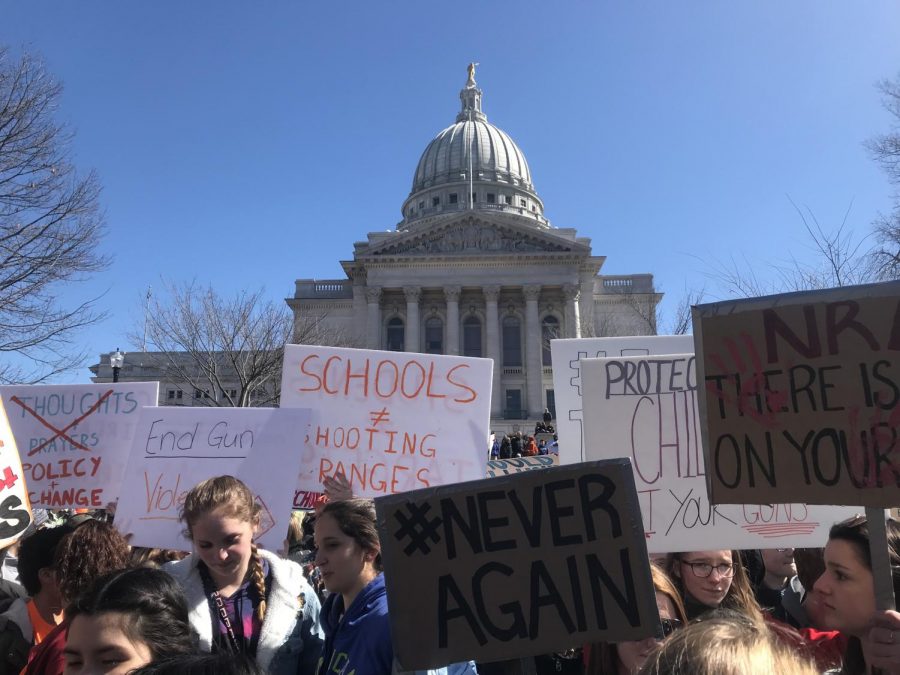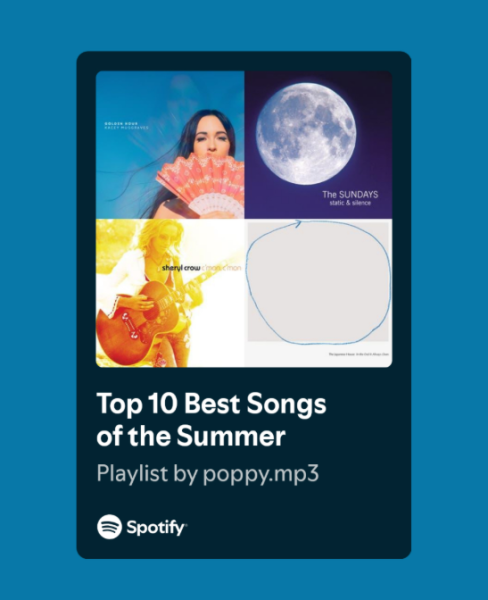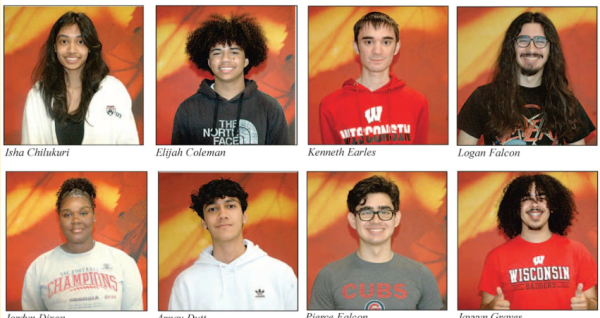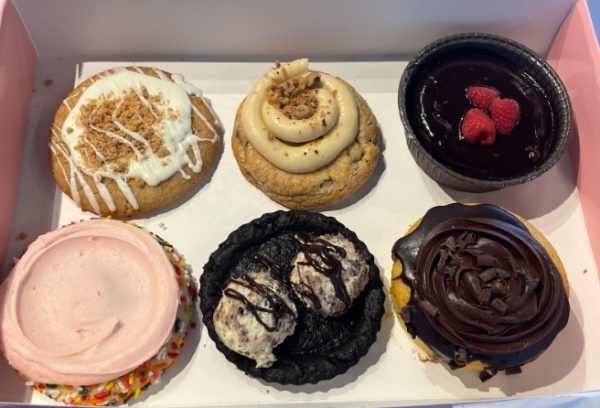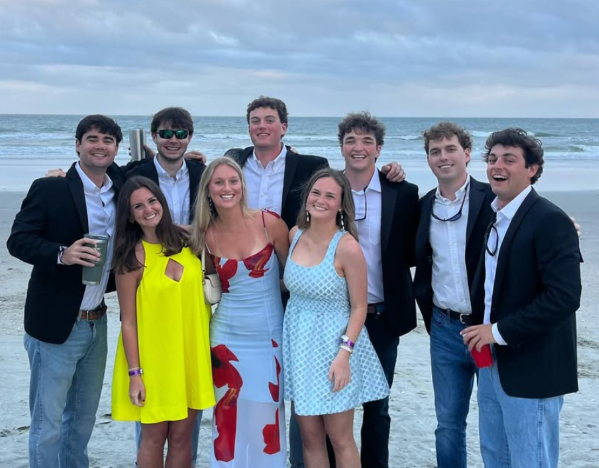Are Walkouts a Good Way to Raise Political Awareness?
Madison Area High School Students Protest at the Wisconsin State Capital
“If all our government and president can do is send thoughts and prayers, then it’s time for victims to be the change that we need to see.”
These are the words of Emma Gonzalez, a senior at Marjory Stoneman Douglas High School and survivor of the mass shooting that left 17 students dead on February 14 in Parkland, FL. Her quote encapsulates the discussion that millions of high schoolers across the country are starting to have about gun control in their communities. Many students, including some at Middleton High School, are planning to participate in two nationwide student walkouts on March 14 and April 20 to convince legislators to pass gun control laws to help kids feel safe in school again.
The walkouts have garnered strong support from many educators, parents, and communities across the country. However, they have also drawn some serious criticism. Critics of the walkouts say that taking students out of school to make a political statement only harms their education and learning experience. Some schools are also arguing against the walkouts because they are worried about the safety of the students gathering outside.
Nonviolent political protests, like walkouts, have always been a controversial topic in the United States and beyond. Throughout history, nonviolent protests have incited turmoil and ruffled the feathers of those who want to maintain the status quo. When asked whether she thought walkouts were a good way of raising political awareness, U.S. Government and Politics teacher Janel Anderson brought up several of such historical examples to support her answer.
“The Montgomery bus boycott is probably one of the most famous, successful examples in American history of a boycott actually working,” Anderson said. “And boycotts aren’t just about stopping businesses, [just like] walkouts don’t have to be just about stopping school. It can also be about drawing attention to your cause – and if you can get media to draw attention that can make a really big difference.”
Anderson also brought up a historical example of a walkout that sent a shockwave through the world: Gandhi’s march to the sea. In the early twentieth century, the British placed a heavy tax on salt in India and forbade Indians to produce their own salt – which was the way that Indians preserved food in the heat because they didn’t have much refrigeration in the 1930s. In response to this, Gandhi told his people that they were going to march. They were going to march to the sea and make salt in front of the authorities, and they were going to do it in such a huge, public display that the authorities wouldn’t be able to stop them.
“So, this may look like a little walkout and a little baby thing that kids are doing, and who cares – and maybe it is,” Anderson said about the March 14 Middleton High School walkout. “But it is part of a long history of nonviolent resistance that has made the world a better place.”
Students at Middleton have mixed views on the walkouts. Some students, like junior Elora Becker, think that the walkouts are a good way to raise political awareness. “I think it is [a good way] because it’s something that you don’t see every day – a large amount of students leaving the school,” Becker said. “So, seeing this [walkout] is going to make people wonder, ‘Oh, why are they doing this?’ if they don’t already know.” Becker thinks that the disruption the walkouts will cause is necessary for change to occur. She used a quote she had discussed in her English class recently to prove her point: “‘One of man’s greatest assets is his – or her – ability to rebel and speak up.’ So, in order for change to be made, I think we need to see this kind of disruption in our lives,” she said.
When asked if she was going to participate in the upcoming March 14 walkout, Becker responded, “I haven’t decided yet, but I think if I do participate, it will be an experience that I won’t forget.” Whether she goes or not, Becker is excited to see what change the walkouts can bring. “I hope [the walkouts] can be effective because kids are scared,” she said. “Schools are scared.”
Other students, like sophomore Jon-Luke Hash, think the walkouts are too disruptive to be a positive and effective method for change. “The thing is, is especially in school, it’s not a benefit to you to be leaving school – a place where you’re supposed to be learning – to achieve something,” Hash said. He also disagreed with the way the walkouts were being used to draw more attention to the issue of gun control laws.
“I think there’s plenty of awareness about [gun control] already,” he said. “I mean, it’s touted in our media, it’s touted in newspapers, it’s touted everywhere….It’s posted everywhere [too]. Literally, you go on to anybody’s Facebook account, and they have some sort of political stance on it. [Gun control is] not really something that needs to be made aware of.”
However, most of the students at Middleton High School seem to be caught somewhere in the middle of these views. One student, who wished to remain anonymous, said that she could see both sides to the controversy around the walkout. “I think that first, we should prioritize safety in school because that’s kind of a really big issue right now,” she said. “And I know a ton of people don’t feel safe in school. But then, we should definitely prioritize education because getting an education is super important, and that’s what’s going to take you places when you’re older. But also, you can’t go places if you’re not alive, so safety is very important.”
The student had not decided yet if she was going to walk out on March 14. She thought the walkouts were a very good idea because, she said, “It’s showing that there’s a bigger purpose and that there’s more than just a couple people wanting the same thing. Like, this is happening nationwide.” On the other hand, the student was concerned about the walkout being during school hours. “I totally agree with the fact that it’s happening,” she said. “I get that, and I agree with that, and I think that it’s amazing that we’re doing this. I think the only problem I have is that I would be missing school.”
With the two national walkouts planned in the next few months, the debate around this topic is not going to fade anytime soon. However, that is not necessarily a bad thing. The goal of political protest is to incite a real discussion about issues that are not being addressed by lawmakers or, sometimes, by the public. As long as students, educators, and community members continue to voice their opinions – about walkouts, about gun control, and about all other issues they see in our world today – we will see positive and powerful change in our world.



